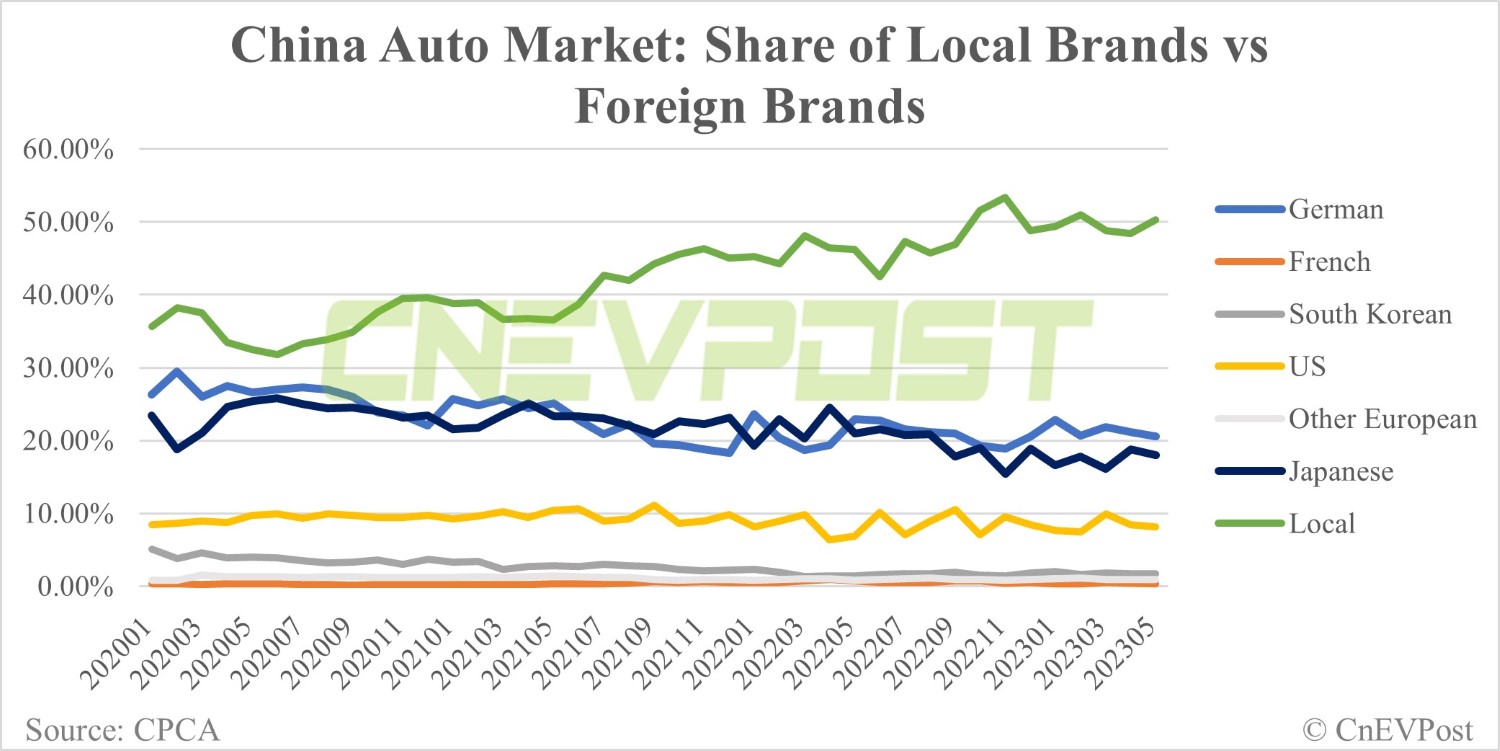The Evolving China Auto Market: BMW, Porsche, And The Path Forward

Table of Contents
The Rise of the Chinese Automotive Consumer
The Chinese automotive consumer is increasingly sophisticated and discerning. Understanding their changing demographics, purchasing power, and evolving preferences is crucial for success in this market. The luxury car sales China figures reflect a dramatic shift in consumer behavior. This isn't just about buying a car; it's about making a statement, reflecting personal success and social status.
- Growing middle class driving demand for premium vehicles: The expanding middle class fuels the demand for luxury cars, creating a large and lucrative market segment for brands like BMW and Porsche.
- Increased focus on technology and innovative features: Chinese consumers are tech-savvy and demand the latest features, including advanced driver-assistance systems (ADAS), connected car technologies, and sophisticated infotainment systems. This necessitates significant investment in R&D and product development.
- Shifting preferences towards electric and hybrid vehicles: Government incentives and growing environmental awareness are pushing consumers towards new energy vehicles (NEVs), including electric and hybrid models. This presents both an opportunity and a challenge for international brands.
- Emphasis on brand image and social status: Owning a luxury car in China is often seen as a symbol of success and social standing. Therefore, effective marketing and brand building are critical. This extends beyond traditional advertising to include social media engagement and influencer marketing.
BMW's Strategy in the China Auto Market
BMW has adopted a comprehensive strategy to navigate the complexities of the China auto market. Their approach emphasizes localization, targeted marketing, and a commitment to electric vehicle technology. BMW sales China reflect the success of this multifaceted strategy.
- Investment in local production and R&D: BMW has invested heavily in local manufacturing facilities and research and development centers in China to reduce costs and improve responsiveness to local demands.
- Targeted marketing campaigns tailored to Chinese consumer preferences: Their marketing campaigns are carefully designed to resonate with Chinese consumers, emphasizing the brand's heritage while adapting to evolving preferences.
- Introduction of electric vehicle models specific to the Chinese market: BMW is actively developing and launching electric vehicle models specifically tailored to the needs and preferences of Chinese consumers. This includes models with features appealing to this market, like larger screens and specific infotainment options.
- Focus on digitalization and connected car technologies: BMW is leveraging digital technologies to enhance the customer experience, offering features like connected services and over-the-air software updates.
Porsche's Approach to the China Auto Market
Porsche's strategy in China differs somewhat from BMW's, emphasizing its strong brand identity and heritage while adapting to market demands. Porsche sales China demonstrate the effectiveness of this approach.
- Emphasis on brand exclusivity and heritage: Porsche maintains a focus on its brand's exclusive image and rich racing heritage, appealing to consumers who appreciate performance and craftsmanship.
- Focus on high-performance sports cars and SUVs: Porsche's portfolio caters to the demand for high-performance vehicles, including both sports cars and increasingly popular SUVs.
- Growing presence of electric vehicles in the portfolio: While maintaining its focus on high-performance combustion engines, Porsche is also expanding its electric vehicle offerings to address growing consumer demand and comply with environmental regulations.
- Strategic partnerships and collaborations within China: Porsche is engaging in strategic partnerships and collaborations with local companies to enhance its market presence and understanding of the local landscape.
The Electrification Challenge
The increasing importance of electric vehicles (EVs) in the China auto market presents a significant challenge and opportunity. Government policies, including subsidies and regulations, are actively promoting EV adoption. The electric vehicles China market is highly competitive, with several strong domestic players emerging.
- Government incentives and regulations driving EV adoption: The Chinese government offers significant subsidies and tax breaks to encourage the purchase of electric vehicles. Stringent emission regulations further accelerate the shift towards EVs.
- Competition from domestic Chinese EV manufacturers: Chinese EV manufacturers are rapidly innovating and gaining market share, posing a formidable challenge to established international brands. These brands are often more adept at understanding and catering to specific local consumer needs.
- Investment in charging infrastructure and battery technology: Building a robust charging infrastructure and investing in advanced battery technology are crucial for the widespread adoption of electric vehicles.
- Need for localization of EV supply chains: Establishing local EV supply chains is essential for reducing costs and improving responsiveness to market demands.
The Future of the China Auto Market
The future of the China auto market is dynamic and full of possibilities. Growth will continue, but success will depend on adaptation to evolving technology and consumer preferences. The automotive technology trends China are setting the stage for global innovation.
- Continued growth in overall vehicle sales: While the growth rate may moderate, the Chinese auto market is expected to remain one of the largest and fastest-growing globally.
- Increased focus on connected car technologies and autonomous driving: Connected car features and autonomous driving capabilities are becoming increasingly important for consumers.
- Growing importance of data and digital services: Data and digital services are increasingly playing a critical role in the automotive industry, providing valuable insights into consumer behavior and creating new revenue streams.
- Intensifying competition among domestic and international brands: Competition will continue to intensify, both between international brands and increasingly powerful Chinese domestic manufacturers.
Conclusion
The China auto market is dynamic, complex, and brimming with potential. For luxury brands like BMW and Porsche, success hinges on a deep understanding of the evolving consumer landscape, strategic localization, and a commitment to innovation, particularly in the realm of electric vehicles. By adapting to the unique challenges and opportunities presented, these brands, and others, can navigate the evolving landscape and secure a strong position in this crucial market. To stay ahead in this rapidly changing landscape, continuous monitoring of the China auto market trends and adaptation of strategies is essential. Understanding the nuances of the Chinese automotive industry will be vital for long-term success. Are you ready to navigate the evolving China auto market?

Featured Posts
-
 Federal Investigation Millions Stolen After Office365 Executive Inbox Breaches
Apr 30, 2025
Federal Investigation Millions Stolen After Office365 Executive Inbox Breaches
Apr 30, 2025 -
 L Ancienne Legende Du Basket S Insurge Contre Les Celebrations A Armes A Feu D Une Star De Nba
Apr 30, 2025
L Ancienne Legende Du Basket S Insurge Contre Les Celebrations A Armes A Feu D Une Star De Nba
Apr 30, 2025 -
 Witt Jr And Garcia Power Royals To Win Against Cleveland Guardians
Apr 30, 2025
Witt Jr And Garcia Power Royals To Win Against Cleveland Guardians
Apr 30, 2025 -
 Eurovision Song Contest Manchester Dates Venue And More
Apr 30, 2025
Eurovision Song Contest Manchester Dates Venue And More
Apr 30, 2025 -
 The Nothing Phone 2 How Modular Design Changes The Game
Apr 30, 2025
The Nothing Phone 2 How Modular Design Changes The Game
Apr 30, 2025
